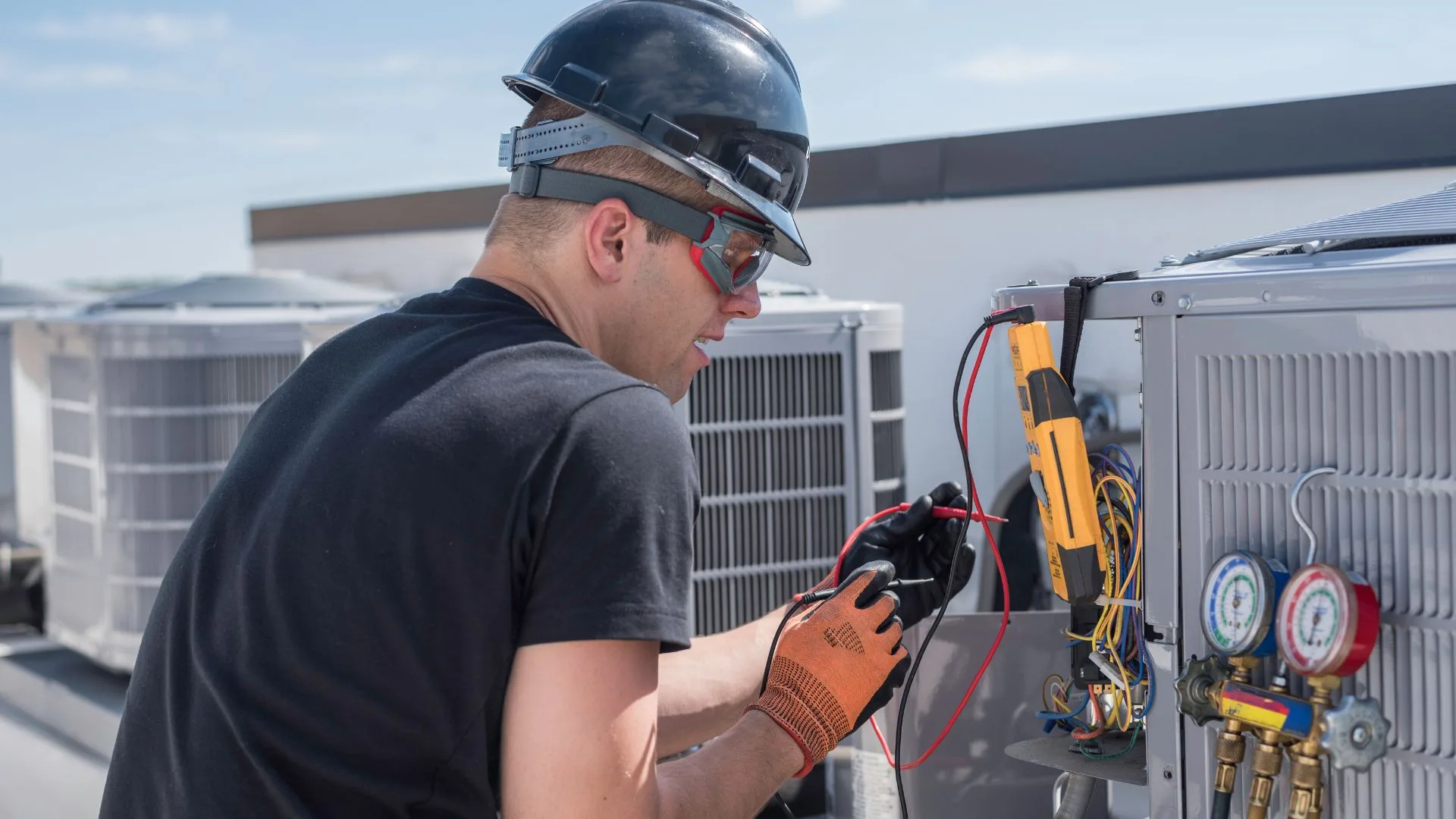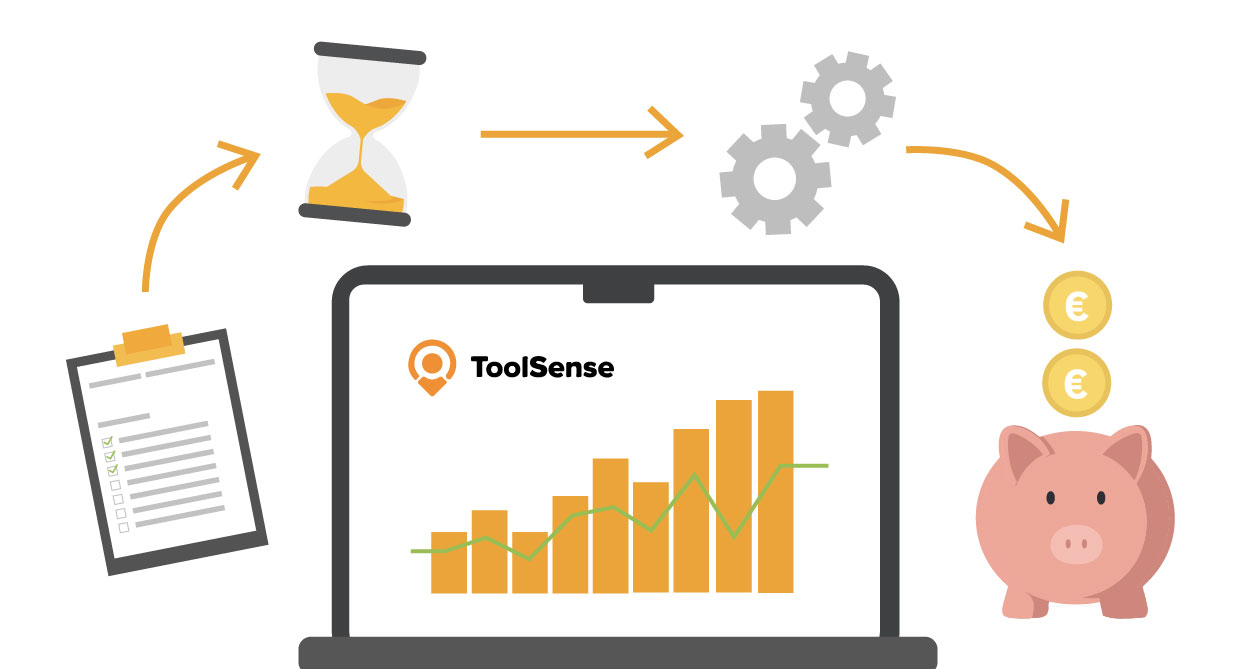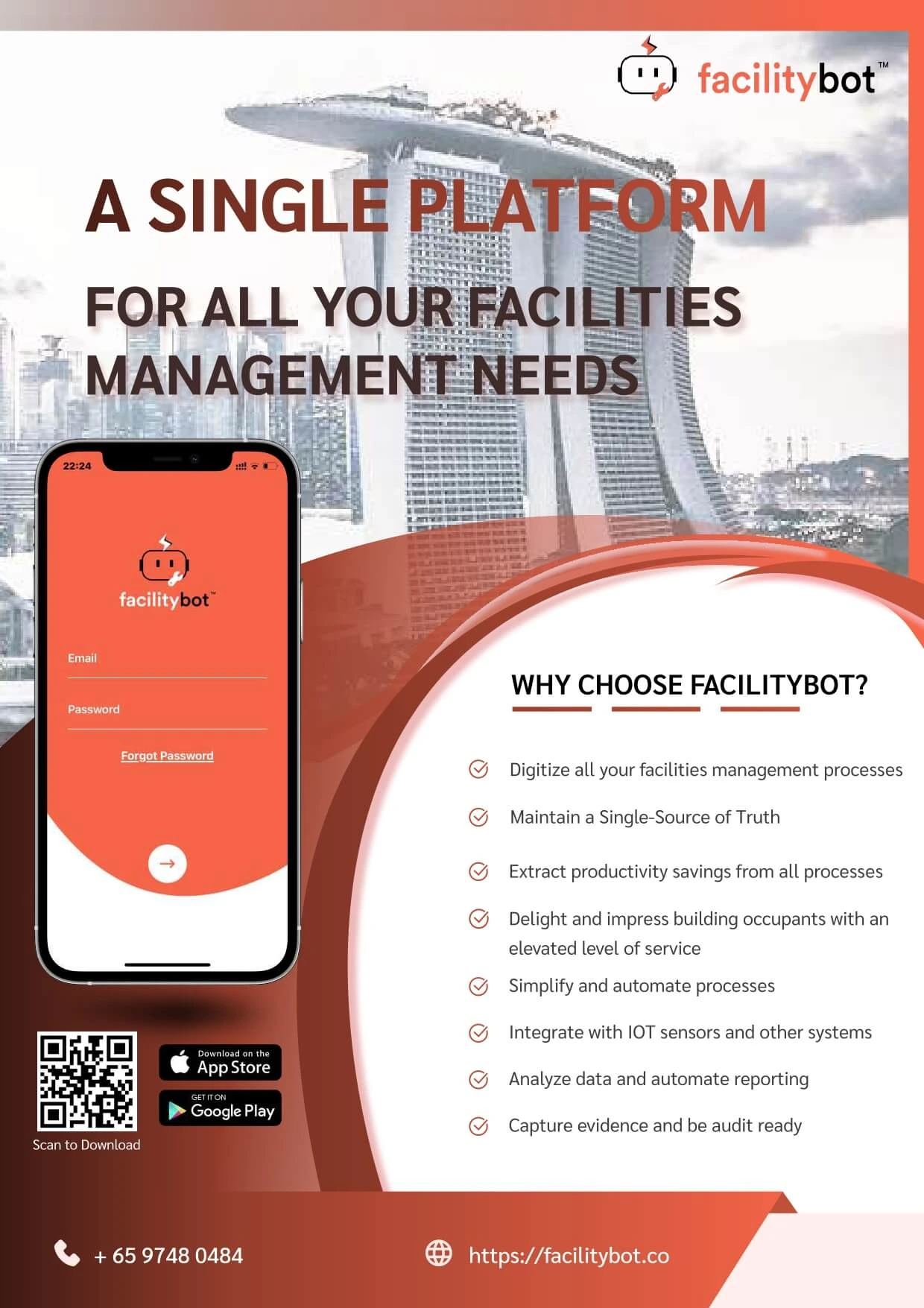In 2025, enterprises are facing increasing pressure to operate more efficiently, reduce costs, and deliver seamless workplace experiences. Facility management — once considered a back-office function — has now become a strategic driver of operational excellence. The integration of Artificial Intelligence (AI) is transforming how facilities are managed, maintained, and optimized.
From predictive maintenance to energy efficiency and automated communication, the benefits of AI facility management are redefining the future of enterprise operations. This article explores how AI-driven facility management software delivers measurable advantages and how solutions like FacilityBot are helping organizations stay ahead of the curve.
What is AI-Driven Facility Management?
AI-driven facility management combines machine learning, automation, and data analytics to monitor, manage, and optimize facility operations. Unlike traditional Computerized Maintenance Management Systems (CMMS) that rely on manual scheduling, AI-based systems learn from real-time data to predict issues, improve resource allocation, and reduce downtime.

AI technology connects with Internet of Things (IoT) sensors, Building Management Systems (BMS), and communication platforms to automate workflows — enabling proactive and data-informed decision-making.
The Growing Importance of AI in Facility Management
According to market research, the global AI in facility management market is projected to surpass $10 billion by 2030, driven by the demand for automation, sustainability, and operational transparency. Enterprises are adopting AI-powered platforms to streamline maintenance, reduce costs, and improve tenant satisfaction — all while supporting sustainability goals.
Solutions like FacilityBot, which integrates AI automation with chat-based fault reporting and workflow management, are leading this transformation across industries such as corporate offices, healthcare, education, and retail.
1. Predictive Maintenance Reduces Costs and Downtime
One of the most significant benefits of AI facility management is predictive maintenance. Instead of relying on fixed maintenance schedules, AI algorithms analyze real-time data from equipment and sensors to predict when assets are likely to fail.
For example, if an air conditioning unit shows signs of increased vibration or power fluctuation, AI can flag the issue before it causes downtime. This enables facility teams to intervene early, saving both time and money.
FacilityBot leverages AI-driven reporting to automate fault detection and assign the right technician instantly — reducing administrative effort and minimizing equipment downtime.
2. Smarter Energy and Resource Management
Energy costs are among the highest operational expenses for enterprises. AI-driven facility management software can analyze patterns in energy consumption and automatically adjust lighting, HVAC, and water systems for optimal performance.
Through continuous learning, AI identifies inefficiencies — such as over-cooled meeting rooms or unnecessary lighting — and adjusts accordingly. This leads to measurable energy savings and contributes to sustainability targets.
With FacilityBot’s integrated data insights, enterprises can visualize energy usage trends and implement efficiency measures across multiple sites with minimal manual oversight.
3. Enhanced Space Utilization and Workplace Efficiency
Post-pandemic, hybrid work models have reshaped how organizations use office space. AI systems collect occupancy data from sensors and access points to help enterprises understand usage trends and optimize space accordingly.
For instance, underused meeting rooms or floors can be repurposed, and cleaning schedules can be adjusted based on actual occupancy. This data-driven approach ensures resources are used effectively and operational costs remain controlled.

FacilityBot integrates with workplace management systems, helping enterprises automate scheduling, cleaning, and maintenance tasks based on real-time usage data.
4. Improved Tenant and Employee Satisfaction
The success of any facility management program ultimately depends on how well it serves the people who occupy the space. AI chatbots are transforming tenant and employee interactions by providing instant communication and transparent service tracking.
With FacilityBot’s AI-powered chat interface, tenants can report issues directly via WhatsApp, Microsoft Teams, or Slack — no need for complex forms or portals. The chatbot instantly creates a work order, assigns it to the right team, and provides live updates.
This automation reduces response times, enhances user experience, and fosters trust — key components of long-term tenant satisfaction and retention.
5. Automated Workflows and Reduced Administrative Load
Traditional facility management systems require manual data entry, ticket logging, and reporting. AI automates these repetitive tasks, freeing up staff for more strategic work.
For example, when a tenant reports a problem through FacilityBot, the AI system automatically categorizes the issue, assigns it to a technician, and updates the requester — all without human intervention.
This streamlined process ensures nothing falls through the cracks, improves accountability, and reduces human error. Over time, automation translates into significant productivity gains across large enterprise facilities.
6. Real-Time Data Insights and Decision-Making
AI-driven facility management software transforms raw data into actionable insights. Dashboards display performance metrics like response times, maintenance frequency, and asset health, allowing facility managers to make data-backed decisions.
Predictive analytics can even forecast future maintenance needs or budget requirements, enabling proactive planning instead of reactive problem-solving.
FacilityBot provides detailed analytics and custom reports that help enterprises measure service performance, tenant satisfaction, and operational efficiency — key KPIs for continuous improvement.
7. Better Compliance and Risk Management
Enterprises must comply with stringent health, safety, and environmental regulations. AI helps maintain compliance by monitoring equipment performance, safety parameters, and maintenance schedules in real-time.
For instance, AI systems can automatically generate compliance reports, send alerts for overdue inspections, and ensure safety checks are completed on time.
Using FacilityBot, facility teams can easily document maintenance activities, manage audit trails, and ensure all service tasks meet regulatory standards — minimizing the risk of non-compliance penalties.
8. Scalability Across Multi-Site Operations
Large enterprises often operate across multiple locations, which makes coordination and consistency a major challenge. AI-driven facility management platforms like FacilityBot offer centralized control and visibility across all sites.
From one dashboard, managers can monitor performance metrics, track maintenance across facilities, and standardize procedures. AI’s automation ensures consistent service delivery regardless of location or team size.
This scalability makes AI-driven facility management ideal for enterprises managing hospitals, universities, retail chains, or corporate offices across regions.
9. Sustainability and ESG Alignment
As sustainability becomes a business priority, AI plays a crucial role in helping enterprises meet their Environmental, Social, and Governance (ESG) goals.
AI can track and reduce carbon emissions, optimize energy use, and minimize waste through intelligent resource allocation. FacilityBot’s data insights also help organizations report measurable improvements in sustainability metrics — supporting ESG transparency and compliance.
The Competitive Edge of AI-Driven Facility Management
The benefits of AI facility management go beyond efficiency — they provide a lasting competitive advantage. Enterprises that adopt AI early can:
- Improve operational resilience
- Enhance tenant and employee satisfaction
- Lower long-term maintenance costs
- Strengthen sustainability efforts
- Build data-driven decision frameworks
As AI technology continues to evolve, facility management will become even more predictive, autonomous, and efficient.
Conclusion
The shift toward AI-driven facility management is not just a trend — it’s a fundamental evolution in how enterprises operate. From predictive maintenance to chat-based fault reporting, the benefits of AI facility management are reshaping the way organizations maintain assets, engage with tenants, and achieve sustainability goals.
Solutions like FacilityBot are at the forefront of this transformation, enabling enterprises to automate workflows, improve communication, and make smarter decisions based on data and AI insights.
In the modern enterprise landscape, AI-driven facility management isn’t just about managing buildings — it’s about empowering smarter, sustainable, and people-focused operations for the future.




